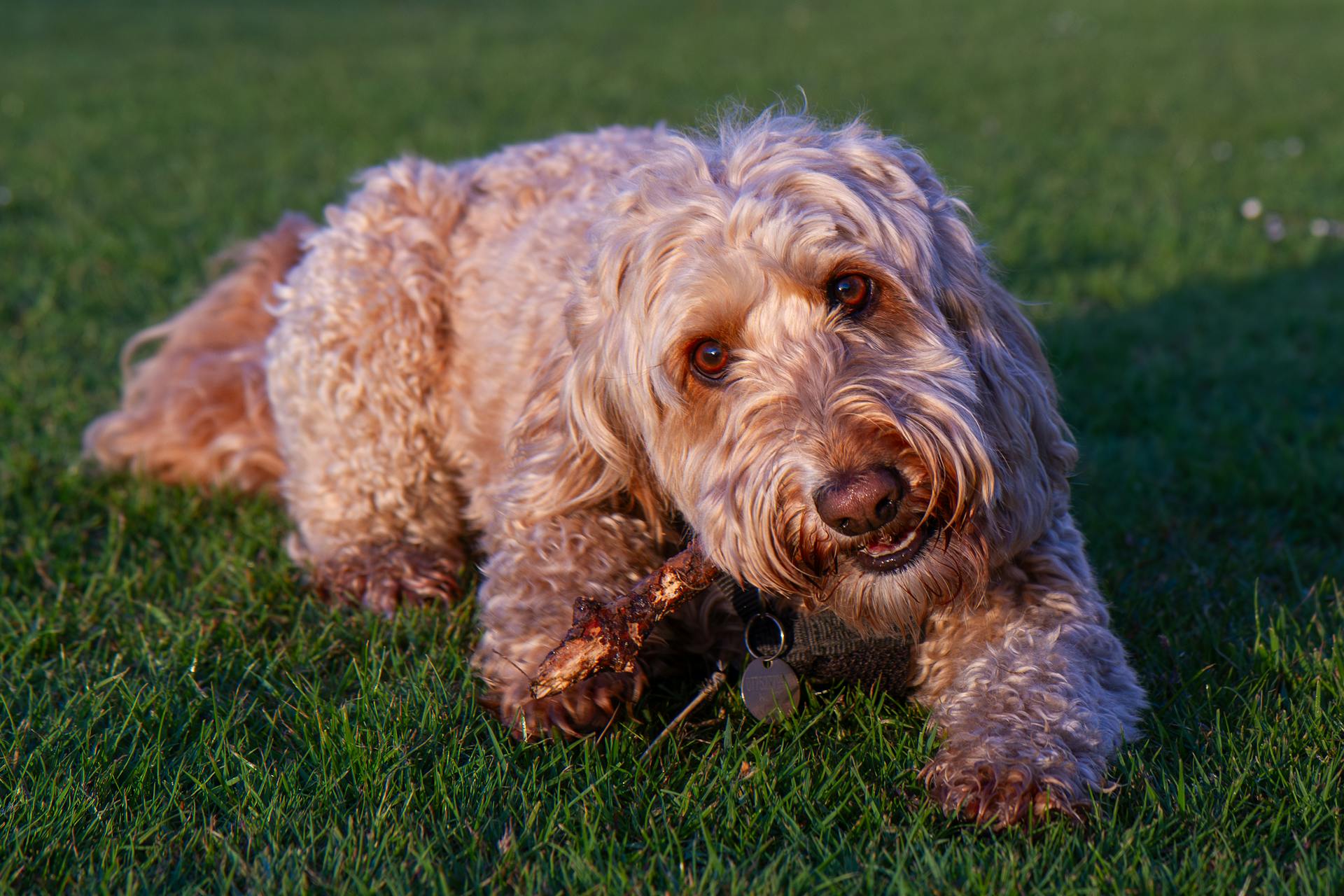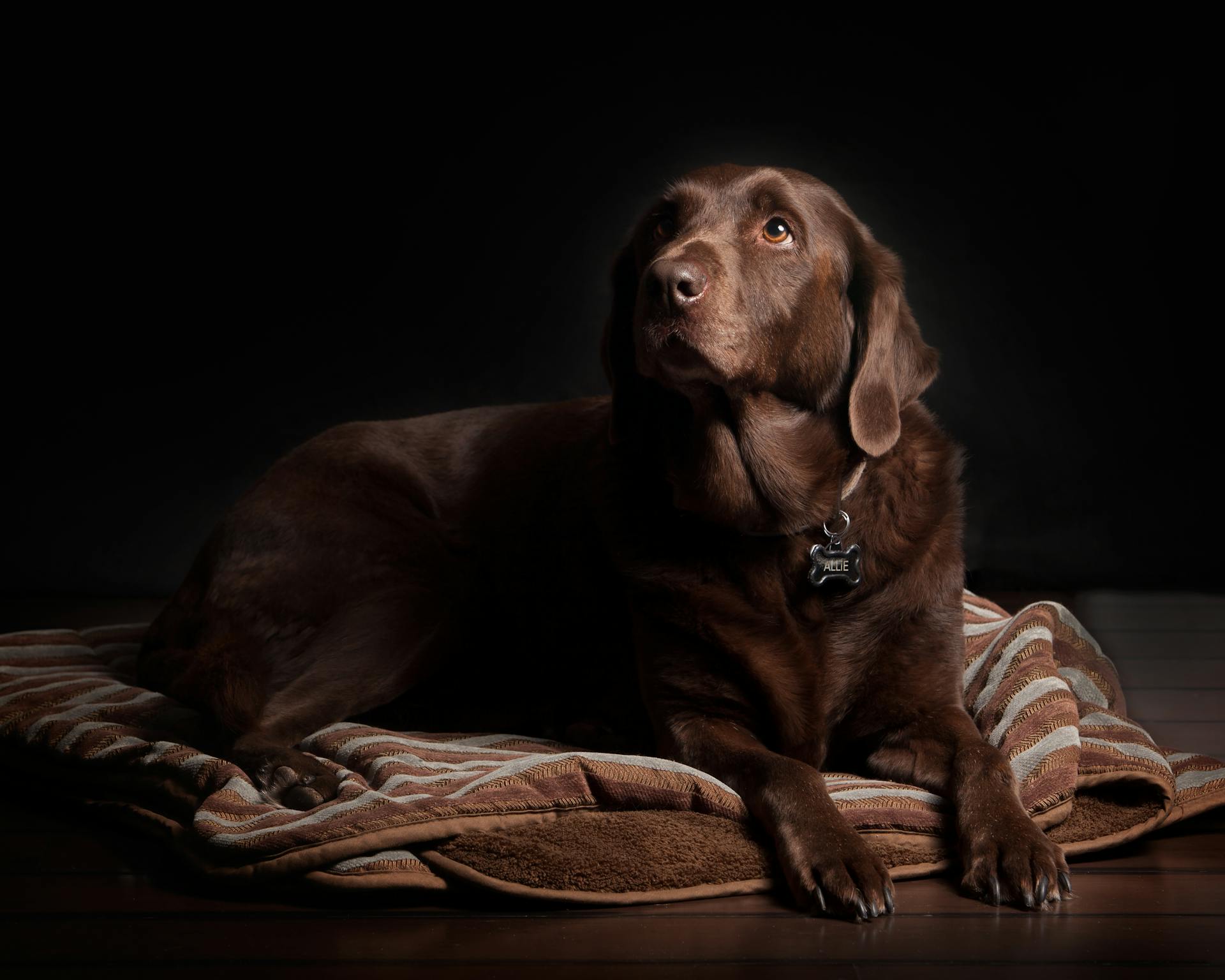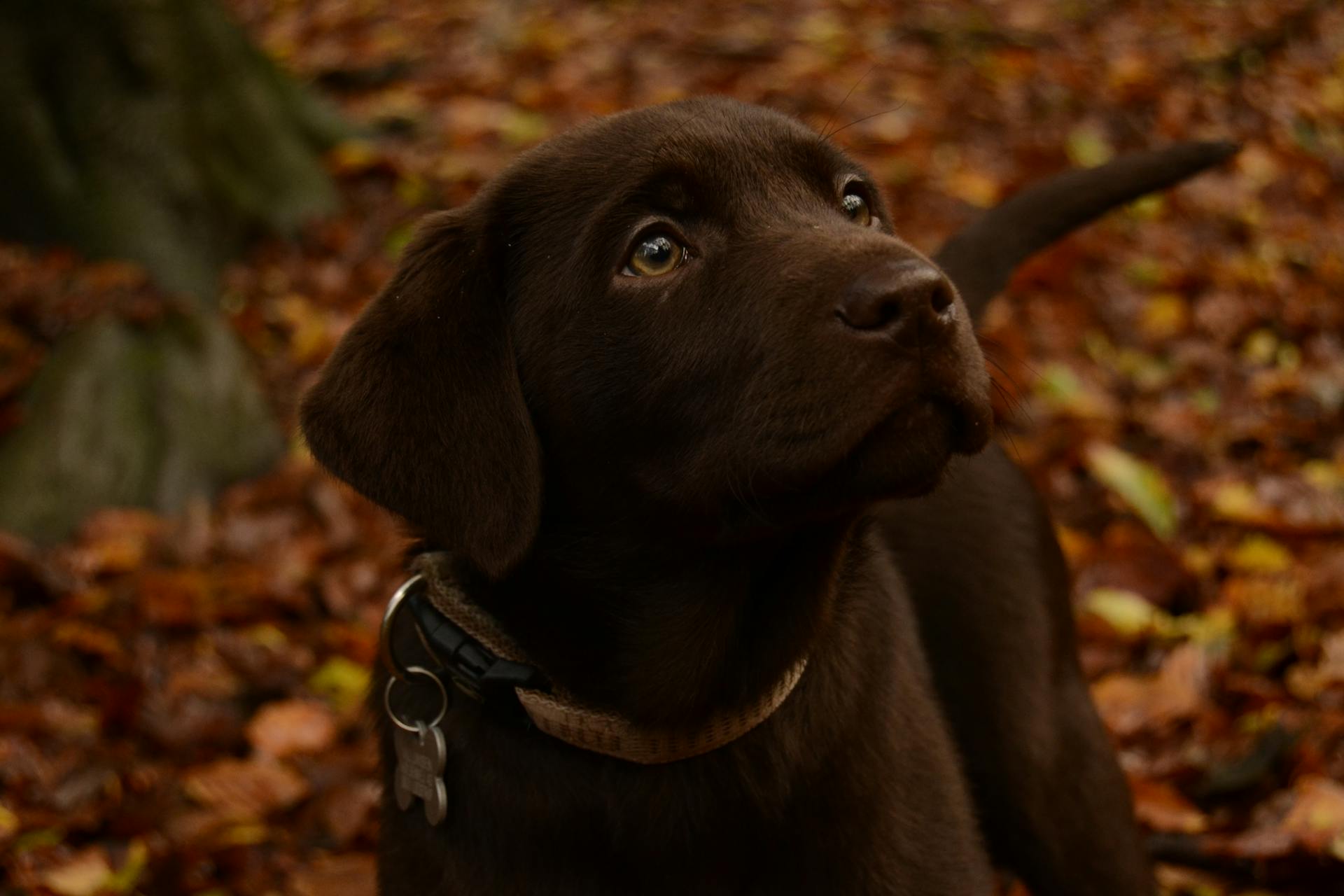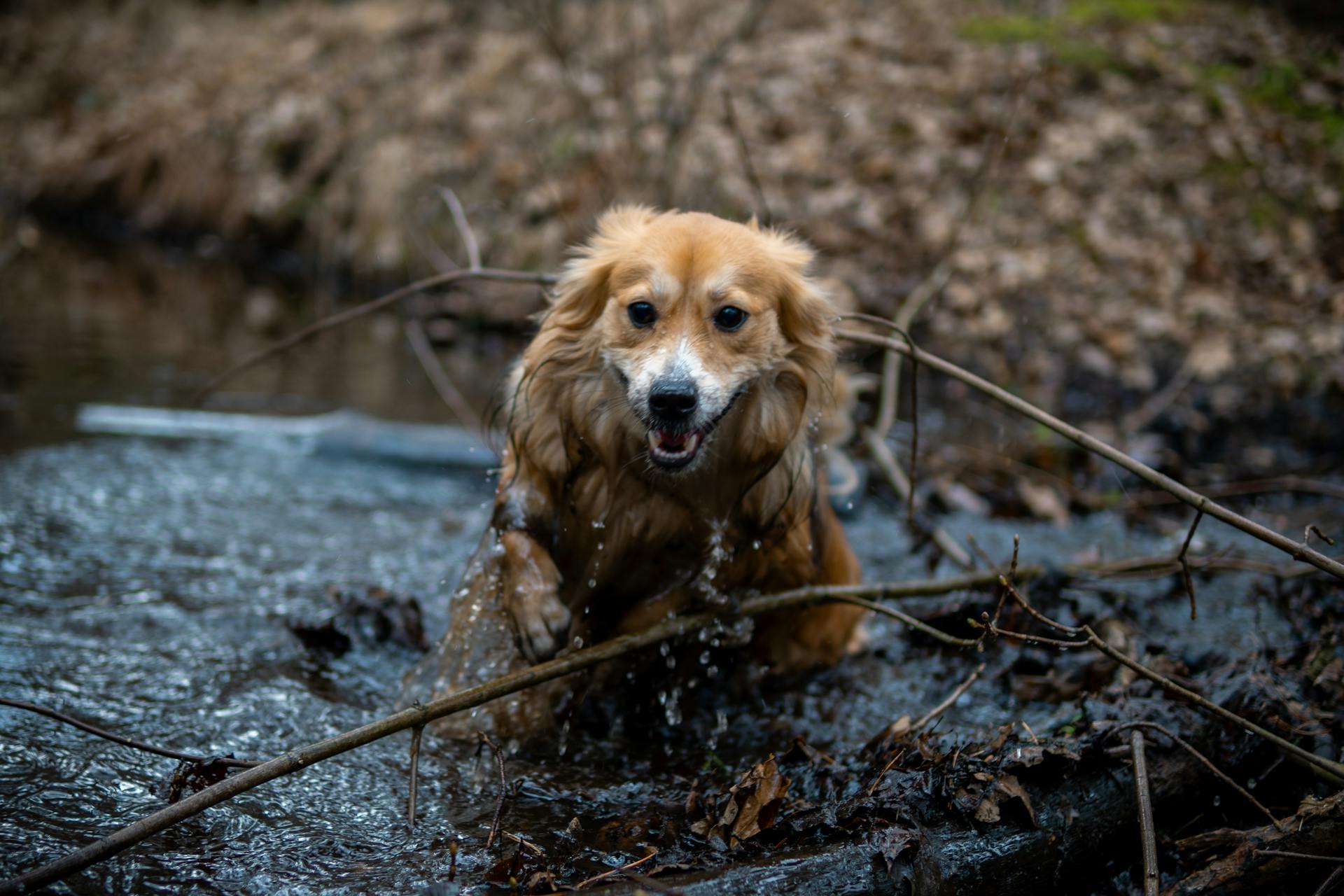
The Brown Maltipoo is a cross between a Maltese and a Poodle, resulting in a unique and charming companion.
Their loyalty is unmatched, as they form strong bonds with their family and are often described as Velcro dogs.
Brown Maltipoos are intelligent and trainable, making them a great choice for first-time dog owners.
With proper training, they can learn a wide range of commands and behaviors.
Quick Facts
The Brown Maltipoo originated in the United States to combine the Poodle's hypoallergenic coat and intelligence with the Maltese's charm and compact size.
Their size can vary, but a full-grown Brown Maltipoo typically weighs between 5-15 pounds.
Brown Maltipoos have a lifespan of 10-15 years, which is relatively long for a dog of their size.
Their coat can come in a variety of types, including straight, wavy, or curly, and is often low-shedding or hypoallergenic.
Brown Maltipoos are known for being affectionate, friendly, and sociable dogs that form strong bonds with their families.
They require moderate exercise, which can be achieved through regular playtime, walks, and mental stimulation.
Brown Maltipoos are intelligent and eager to please, making them trainable with positive reinforcement methods.
Here's a breakdown of their grooming needs:
- Regular brushing is essential to keep their coat in good condition.
- Occasional professional grooming may be necessary, depending on the coat type.
All-Around Friendliness
Maltipoos are loving companions that thrive on human interaction and love being involved in family activities. They're perfect for families who want a furry friend to join them on their adventures.
They're alert and will bark at anything suspicious, but don't expect them to show any aggression. They're more likely to want to be loved and cuddled by their human.
Maltipoos are intelligent and can get along with just about anybody, as long as they're properly socialized in puppyhood. Socialization is key to ensuring your Maltipoo grows into a well-rounded dog.
They're gentle and devoted, enjoying spending their days perched on their owner's laps or walking beside them. They're also active and feisty, enjoying a good play session just as much as a long cuddle.
Maltipoos are sensitive dogs and may not be suited to chaotic environments. They prefer quiet homes where they can feel safe and loved.
They're prone to separation anxiety, so it's essential to spend quality time with your Maltipoo and provide them with plenty of attention and love when you're apart.
Overview and History
The Maltipoo is a cross between a Maltese and a Toy or Miniature Poodle. This adorable combination makes them a popular choice for many families.
A Maltipoo's perfect day includes playing dog games, walking, and racing through the house. They're active, feisty, and fun-loving dogs who enjoy life to the fullest.
Maltipoos are sensitive to their people's wants and needs, and they thrive on attention and companionship. They're ideal for first-time or timid owners, and they're easy to train.
Here are some key facts about Maltipoos:
Maltipoos are a hybrid breed, not a purebred, and they're often referred to as designer dogs.
Overview
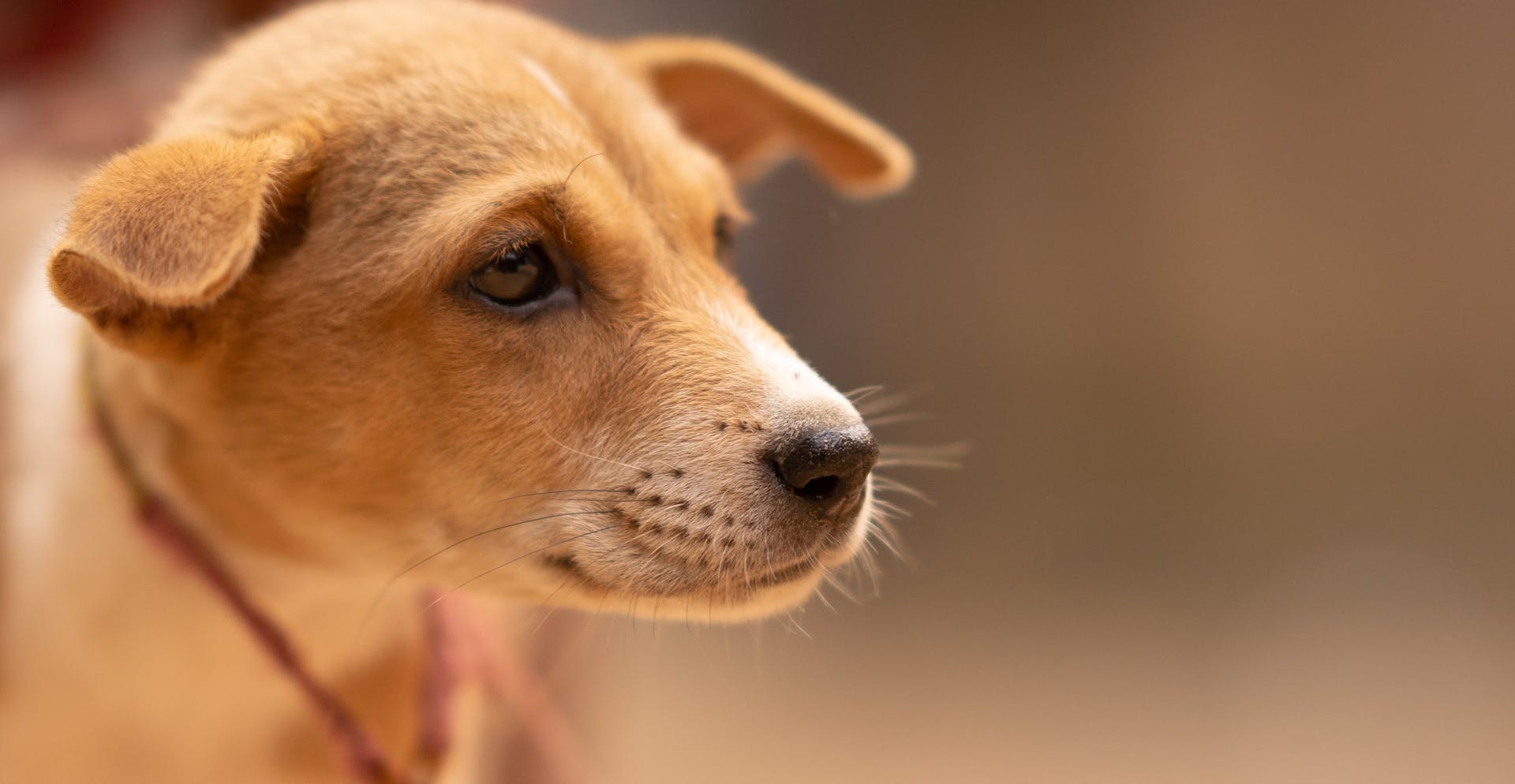
The Maltipoo is a cross between a Maltese and a Toy or Miniature Poodle, making it a popular hybrid breed. They are known for being affectionate and gentle, making them excellent therapy dogs.
Maltipoos are often referred to as designer dogs, as they are purposely bred to combine the characteristics of their parent breeds. This breeding process aims to create hypoallergenic dogs, but it's essential to note that all dogs produce dander and saliva, which can trigger allergies.
With a lifespan of 10 to 13 years, Maltipoos can adapt to various living situations, from apartments to houses. They are relatively small in size, weighing between 5 to 20 pounds and standing between 8 to 14 inches tall.
Here are some key characteristics of the Maltipoo breed:
Maltipoos are friendly, gentle, and outgoing, making them suitable for families with children, seniors, and even other pets like cats. They are highly intelligent and easy to train, which is perfect for first-time dog owners.
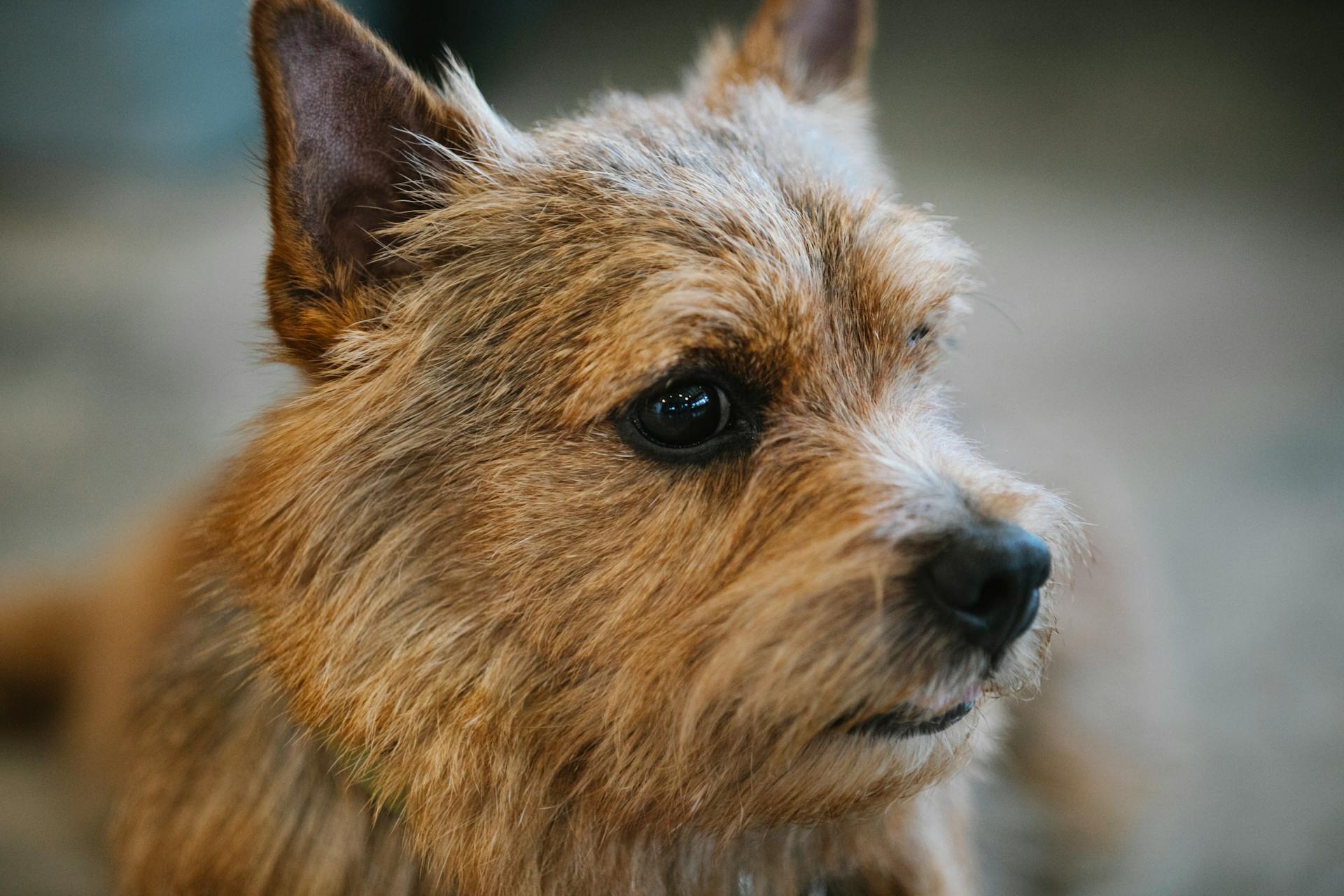
In terms of exercise needs, Maltipoos require moderate activity, which can be fulfilled through daily walks and playtime. They are active and love to play, but they also enjoy long cuddles and are sensitive to their owners' needs.
One thing to note is that Maltipoos can be barkers and may alert you to every little thing. With patience and training, they can learn to discriminate between important and unimportant sounds.
Overall, the Maltipoo is a loving and adaptable breed that can thrive in various living situations, making them an excellent choice for many families.
History
The Maltipoo's history is a fascinating story. The breed was created to be a small-breed companion dog for people with allergies.
Their popularity soared due to their charming and affectionate nature, making them a favorite among celebrities. Many Maltipoos are the result of first-generation breedings between Maltese and Poodles.
The Maltipoo is not officially recognized as a true breed, but a dedicated fan club, the North American Maltipoo/Maltepoo Club and Registry, has formed to support and register these lovable dogs.
Physical Characteristics
Brown Maltipoos are typically small dogs, standing 8 to 14 inches tall.
Their weight can vary, but they usually range from 5 to 20 pounds.
Their soft coat is medium-to-long length and can be wavy or curly.
You can find Brown Maltipoos in a variety of colors, but they're most commonly white and cream.
They can be bicolor or tricolor, or even have a marbled coat.
One thing to note is that Brown Maltipoos shed very little, which can make them a good choice for people with allergies.
However, it's essential to remember that there's no such thing as a hypoallergenic dog, as all dogs produce allergy-inducing dander and saliva.
Additional reading: Maltipoo Coat Types
Health and Care
A brown Maltipoo's lifespan is anywhere from 10–13 years, so you've got a good chunk of time to spoil them rotten.
They're prone to some health issues, such as white shaker syndrome, luxating patellas, allergies, dental disease, and progressive retinal atrophy. Make sure to get your Maltipoo from parents with health clearances through the Orthopedic Foundation for Animals (OFA) for patellas.
Daily grooming is a must to prevent painful matting or sores on their skin, and regular nail trimming and brushing of their teeth will keep them healthy and happy.
Take a look at this: Maltipoo Health Issues
Care
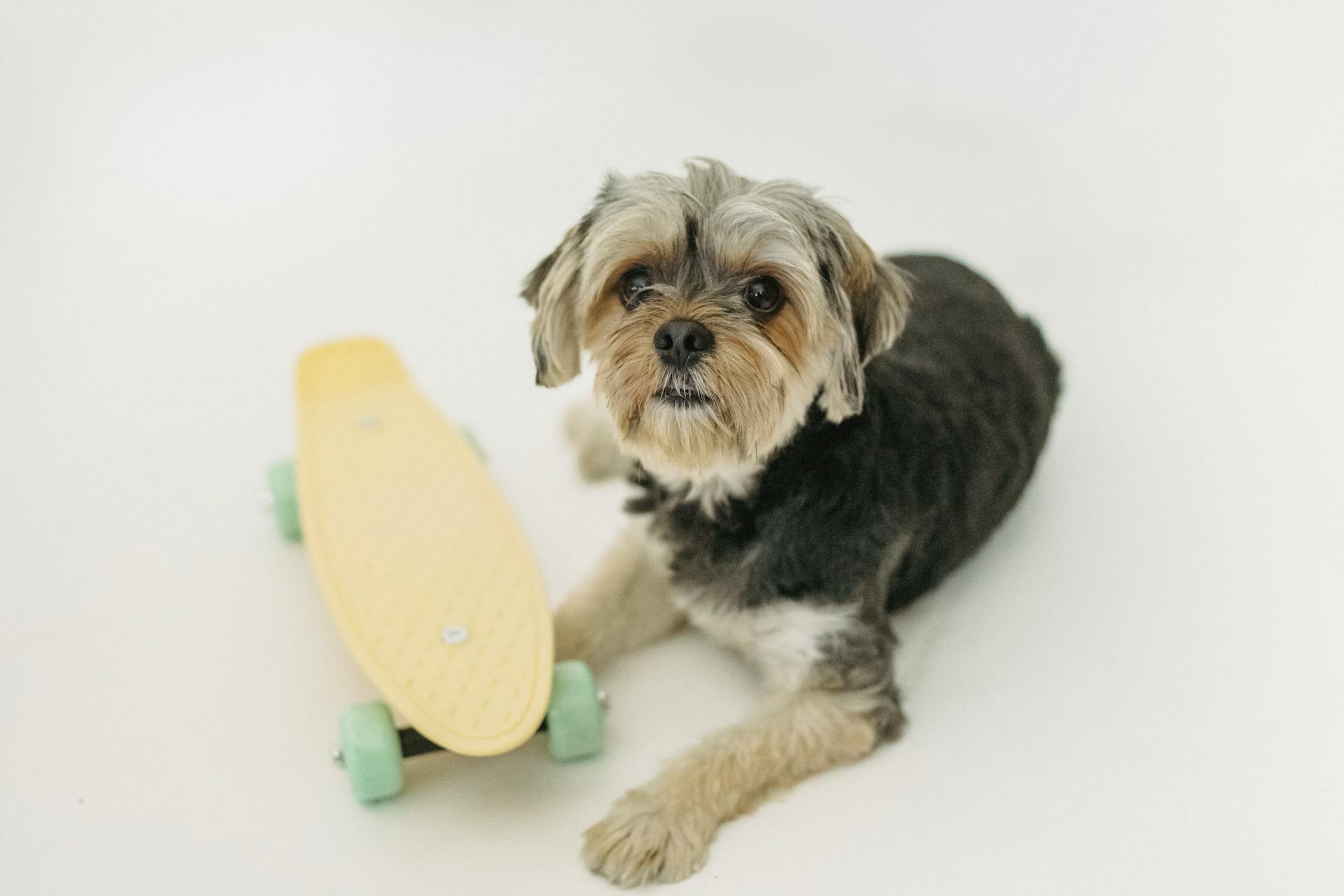
Maltipoos require daily brushing to prevent matting and painful sores on their skin.
Their medium-long wooly coat needs a bath about once a month and haircuts every few months, except for the area around their face and eyes, which requires monthly trims.
Examine and trim your pup's nails monthly to ensure they stay healthy.
Maltipoos need to have their teeth brushed at least a couple of times a week.
A short 15-minute walk or a game of fetch indoors will keep them happy and healthy.
Maltipoos are eager to play, so incorporating some fun into training will deliver the best results.
They require plenty of time to be potty trained, whether it's using the wee pads indoors or going outside to do their business.
It's essential to trim the hair around your Maltipoo's eyes to see their cheeky and playful expression and prevent eye problems.
Daily brushing with a wide-toothed comb is recommended, especially after a bath to avoid tangles.
A slicker brush with soft bristles and a comfort-grip handle is a great tool for caring for your Maltipoo's coat.
Health
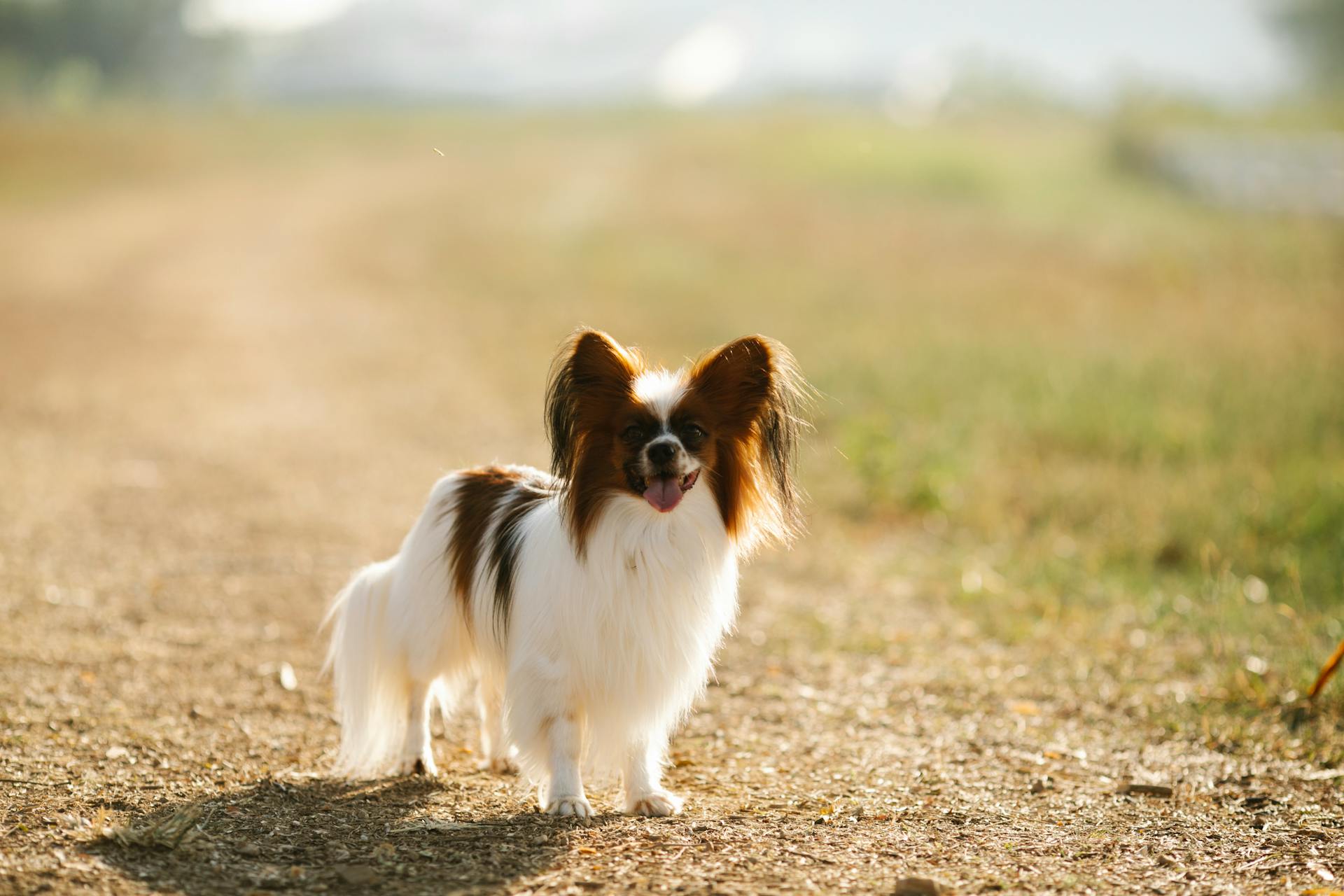
The Maltipoo's lifespan is a relatively long one, typically ranging from 10 to 13 years.
Health issues aren't extremely common in Maltipoos, but there are some conditions to be aware of.
White shaker syndrome is a condition that can affect Maltipoos, and it's essential to discuss it with your veterinarian.
Make sure the parents of your Maltipoo have health clearances through the Orthopedic Foundation for Animals (OFA) for patellas, as luxating patellas is quite common in this breed.
Allergies, dental disease, and progressive retinal atrophy can also be problems for Maltipoos.
A quality diet, dental treats, and regular brushing can help prevent oral health issues in small dog breeds like Maltipoos.
Check with a veterinarian to determine the best food for your Maltipoo.
Feeding
Feeding is a crucial aspect of your Maltipoo's health and care.
The recommended daily amount of high-quality dog food is 5/8 to 1.5 cups, divided into two meals.
A highly active Maltipoo will need more food than a couch potato dog, so it's essential to consider your dog's lifestyle.
Worth a look: Maltipoo Puppy Food
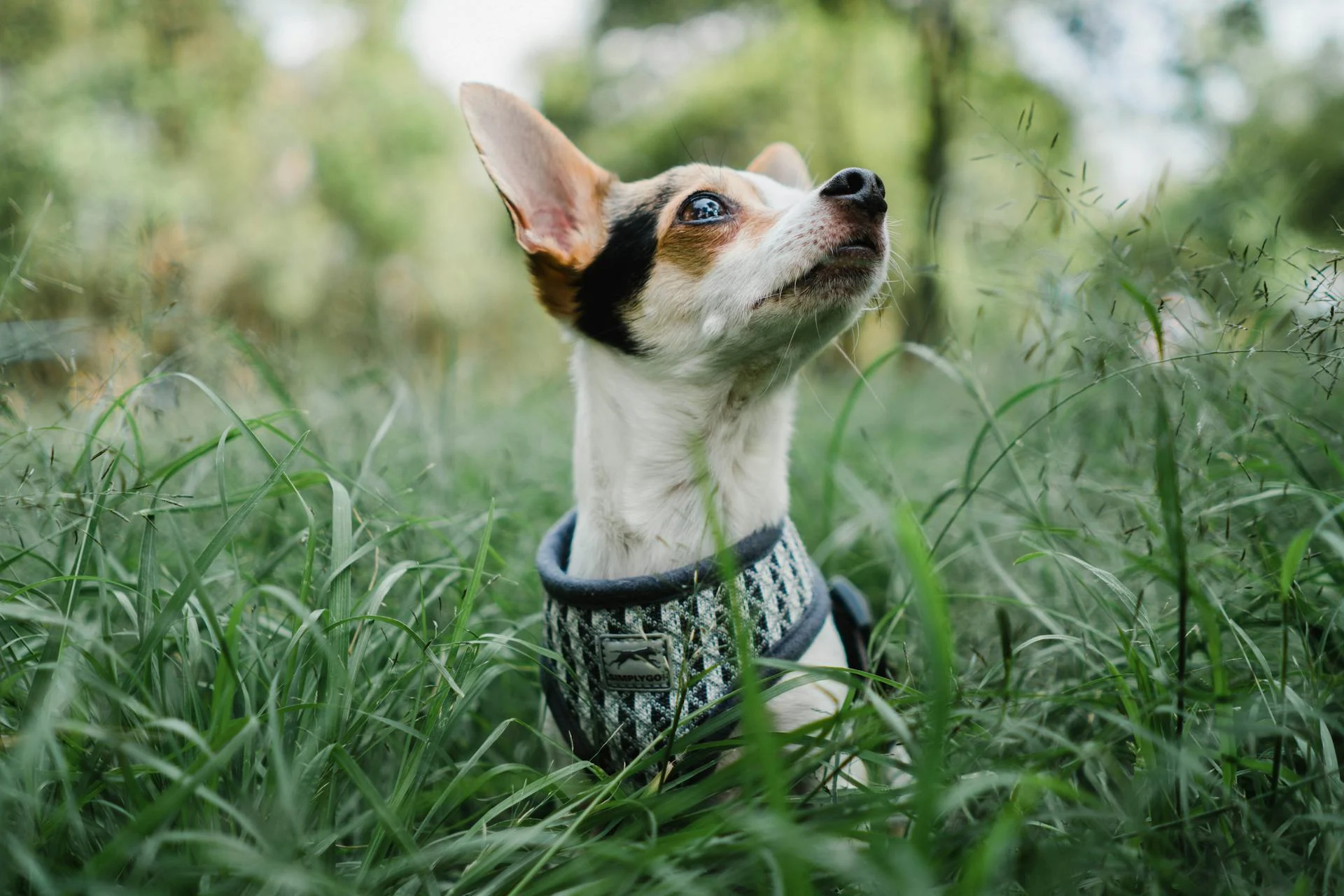
The quality of dog food also makes a difference - better food will go further and nourish your dog more efficiently.
You should measure your Maltipoo's food and feed him twice a day rather than leaving food out all the time.
If you're unsure whether your Maltipoo is overweight, give him the eye test and the hands-on test.
For the eye test, look down at your Maltipoo and make sure you can see a waist.
For the hands-on test, place your hands on his back with your thumbs along the spine and fingers spread downward.
Hypoallergenic
Hypoallergenic products can be a game-changer for people with allergies.
Using hypoallergenic products can reduce the risk of allergic reactions by 70% according to a study on skincare products.
Hypoallergenic fabrics are designed to minimize the release of allergens and irritants.
These fabrics are often made from natural fibers like cotton and bamboo, which are gentle on skin and the environment.
Take a look at this: Maltipoo and Allergies
People with sensitive skin can benefit from using hypoallergenic soaps and cleansers that are pH balanced.
A pH balanced soap can help maintain the skin's natural barrier, reducing irritation and inflammation.
Some hypoallergenic products contain ingredients like oatmeal and aloe vera, which have anti-inflammatory properties.
These ingredients can help soothe and calm irritated skin, reducing the risk of allergic reactions.
Price
The price of a maltipoo can be a shock to many potential owners. Expect to pay $2,000 to $3,000 for a puppy from a reputable breeder.
Be sure to choose a breeder that prioritizes the health and well-being of their dogs, as unhealthy puppies can lead to costly vet bills down the line. This means avoiding breeders who sell puppies under eight weeks old, as they may not be fully weaned or socialized.
If you're looking for a specific color, be prepared for a higher price tag. Maltipoo pups with rarer colors like tri-colours and "phantom" can cost $4,000 or more.
Adopting a maltipoo through a rescue organization can be a more affordable option, with prices ranging from $100 to $800.
You might enjoy: How Much Is Maltipoo Puppy
Lifespan
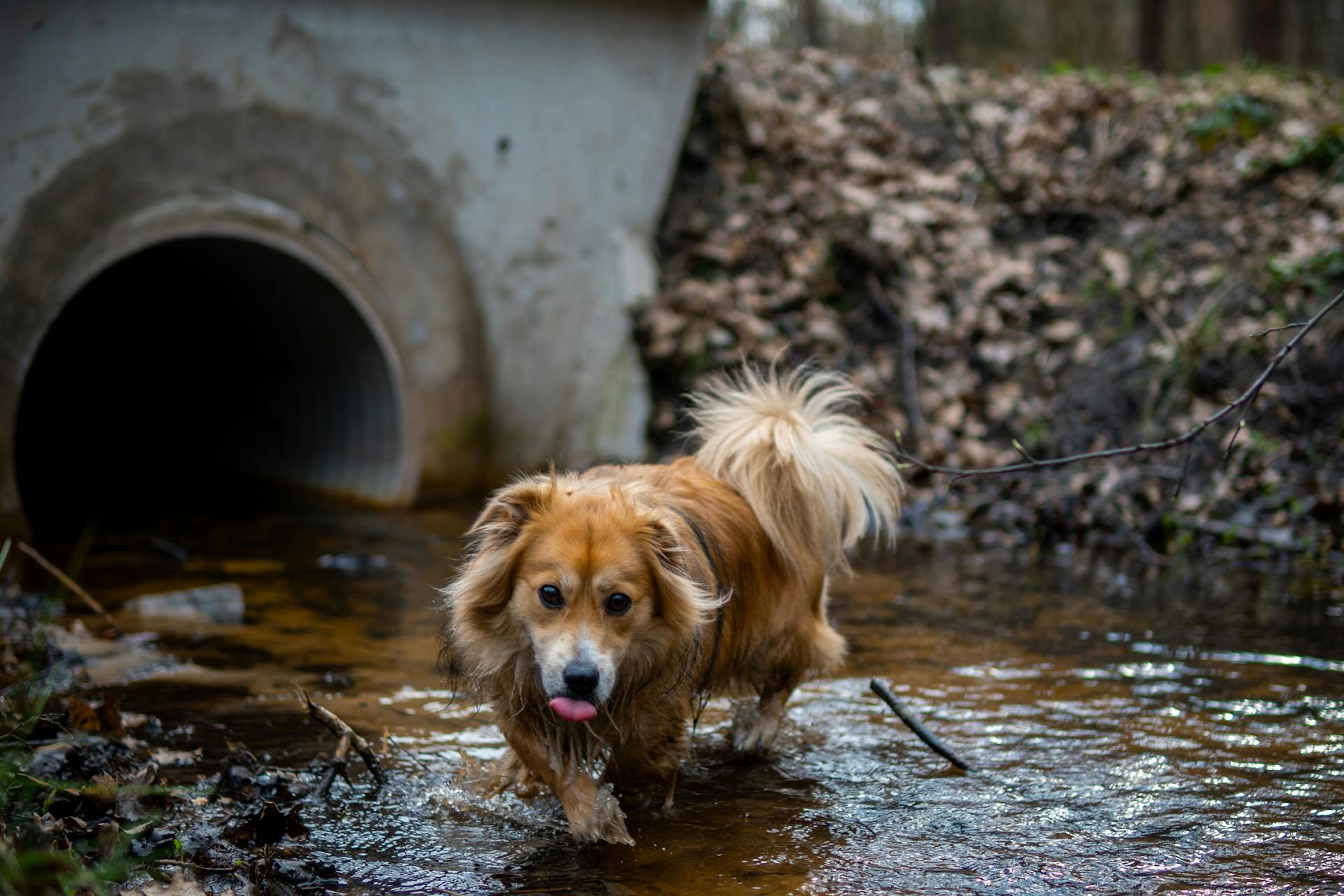
Maltipoos are known to live a relatively long life, with an average lifespan of 12 to 16 years. This is consistent with the trend of small dogs having a longer lifespan than large dogs.
Their lifespan can be influenced by a range of factors, including genetics and lifestyle. However, with proper care and attention, many Maltipoos can live well into their teens.
Here are some common health issues that can affect Maltipoos, along with their potential lifespan impact:
- Lameness from patellar luxation: This can cause chronic pain and limited mobility, potentially reducing a Maltipoo's lifespan by several years.
- Epilepsy: This neurological condition can cause seizures and affect a Maltipoo's quality of life, potentially shortening their lifespan.
- Shaker syndrome: This condition causes a Maltipoo's entire body to shake, which can be distressing and may affect their overall health and lifespan.
- Portosystemic shunt: This congenital condition can cause seizures and stunted growth, potentially affecting a Maltipoo's lifespan.
Frequently Asked Questions
Are brown Maltipoos rare?
Yes, brown Maltipoos are relatively rare due to their genetic makeup. They are most commonly found in a deep chocolate color.
What is the best color for a Maltipoo?
The most popular colors for Maltipoos are Cream, Red, and Apricot. While Cream is a top choice, individual Maltipoos may display lighter or darker patches, making each one unique.
How big do brown Maltipoos get?
Maltipoos, regardless of coat color, typically range in height from 8 to 14 inches and weigh between 5 to 20 pounds. Their size can vary depending on the size of their Poodle parent.
Featured Images: pexels.com
